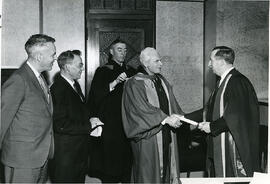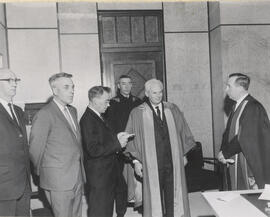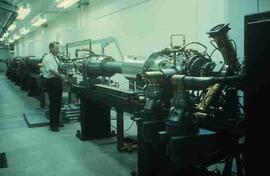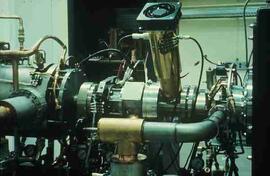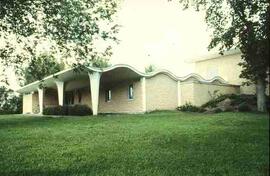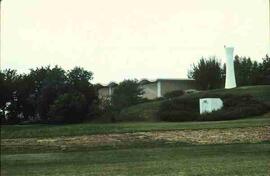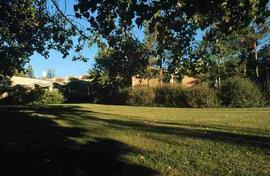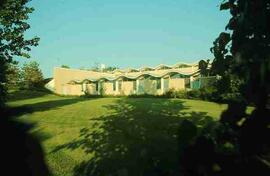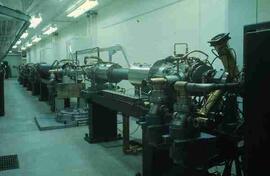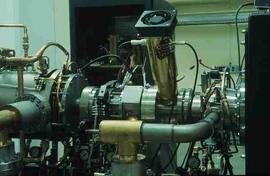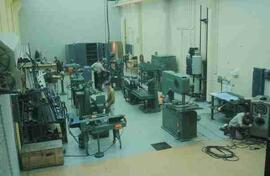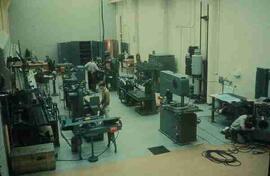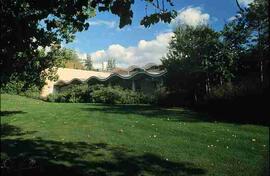Honourary Degrees - Presentation - Dr. V.V. Vladimirskii
- A-4420
- Item
- 17 Nov. 1964
Dr. Vasilii Vasilevich Vladimirskii, Russian nuclear physicist and Director of the Institute for Theoretical and Experimental Physics, Moscow, receives an honourary Doctor of Science degree in a special ceremony in President Spinks' office. Standing (l to r): Dr. B.W. Currie, Dr. Leon Katz, Norman K. Cram, Dr. Vladimirskii and J.W.T. Spinks.
Bio/Historical Note: Born in August 1915 in Zheleznovodsk. Russia, Dr. Vasilii Vasilevich Vladimirskii graduated from Moscow University in 1938. Since 1946, he has been deputy director of the Theoretical and Experimental Physics Institute in Moscow. His works have been in optics, propagation of ultrasound and electromagnetic waves as well as in the theory of linear accelerators and neutron spectroscopy. He participated in the creation of the Serpukhov accelerator whose energy level is 70 giga-electron-volts. State Prize, 1953; Lenin Prize, 1970. He served as an advisor to the Theoretical and Experimental Physics Institute (ITEP) in Moscow.

